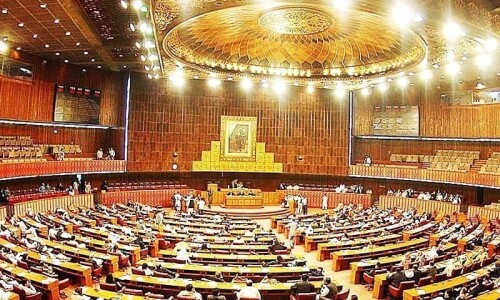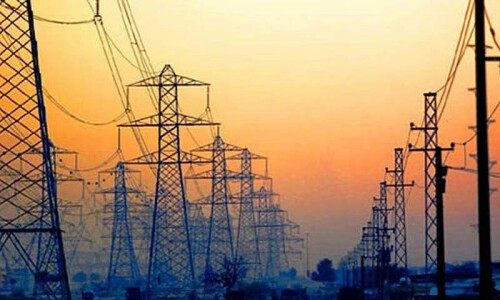
The hostility between India and Pakistan is nothing new. However, with the passage of time, the rivalry has found a new frontier, the cyber world. Unfortunately, the medium that could have been used to bridge the divide and hose down the hostility between the two nations is being used to spew hatred and fight the same war on the cyber front.
According to information available, Pakistani hackers were the first to launch an offensive against an Indian website. The attack ensued in 1998 in response to the official announcement made by India regarding the nuclear tests that were conducted in Pokhran. In what followed, the Bhabha Atomic Research centre website was hacked by a group called Milworm who had defaced the web front and posted anti-India messages on the website.
The controversial Kargil War of 1999 also saw similar efforts on the online front from Pakistan’s end. This time, Pakistani hackers had taken over www.armyinkashmir.com and used the opportunity to post photos showing the atrocities allegedly committed by Indian troops during the Kargil War.
The Indian Response
It was not until the year 2000 that the Indians started fighting back on this new found frontier. The first alleged attack came from a group calling themselves “Patriotic Indians” who claimed to have hacked into Pakistani government websites. Other prominent Indian hacker groups include the H20, also known as the Hindustan Hackers Organisation, and the Indian Cyber Army. It is also believed that there are a number of solo hackers working towards the same cause from both sides of the border.

The available stats clearly indicate that Pakistan has thus far been winning the war on the cyber front as the ratio of websites hacked between the two sides is anything but close to equal. In addition to launching its own online offensive, India has also alleged that the Pakistani hackers’ network has the patronage of the security establishment, in particular the ISI.
Pakistan has a number of independent groups that have dedicated themselves to the continuous and ongoing online battle. The leading amongst them are the Pakistan Cyber Army, G Force and the Pakistan Hackers Club.
According to several computer security websites, the number of Indian websites hacked by Pakistani groups increased from 4 in 1999 to 72 in 2000. In comparison about 7 Pakistani websites were hacked in 1999 by Indian groups and this number rose to 18 in 2000. Pakistani hackers responded to this by hacking over 150 Indian websites in 2001. From then onwards a large number of key websites of both countries have been hacked.
Post Mumbai Attacks
In 2010, the Indian Cyber Army hacked dozens of Pakistani websites including those of the security agencies, Islamic organisations, Oil and Gas Regulatory Authority website and the Ministries of Education and Finance.
In retaliation, the Pakistan Cyber Army compromised about 270 Indian websites which included the high profile website of the CBI as well as the Indian state-run Oil and Natural Gas Corporation website.
The trademark style of hackers on both sides is to deface the landing page and post threatening messages. Whereas initially the messages were focused on Kashmir or general anti-state slogans, following the Mumbai massacre of 2008, the recurring theme seems to be referencing the event and threatening an explosive aftermath.
The ICA and other groups from the Indian side openly allege that the Mumbai attacks were planned and executed by Pakistan whereas Pakistani hackers attempt to play down the accusation by posting messages that are offensive, laughable and most of the times grammatically incorrect! Also a key feature of the Pak-India cyber war is the element of “Top That” which is suggested with every cyber attack.
There is no denying the fact that both sides have some highly capable hackers in their ranks. There is also no doubt about the fact that the Pak-India cyber war has been escalating with time. The Indians have started taking cyber security seriously and are keen on defending their cyber sovereignty from any threats from across the border. At the moment however, India is trying to catch up with the ‘dedicated’ professional hackers of Pakistan that have thus far dealt a heavier cyber blow to India than they have to Pakistan.
While cyber security is an important aspect that should be given its due diligence, setting up Cyber Armies for the sole purposes of waging a cyber war is a waste of time, effort and talent. These dedicated groups would be much better off serving their country by fortifying their own cyber sovereignty and taking on various web related projects that could be beneficial for the country in particular and humanity in general.
Take for example the concept of Eballoting, for holding elections online or taking on an initiative like Khan Academy which has done wonders in the field of education. There is absolutely no barrier to entry for useful initiatives on the web, in fact there is ready funding available for many such initiatives such as the P@sha Fund for social innovation in Pakistan and surely there must be similar opportunities across the border as well. In essence, the Pak-India Cyber War is futile and needs to be abandoned in totality. Instead, the talented lot should be competing to take on revolutionary and beneficial online initiatives if they want to prove anything worthwhile.
Rishadullah Shaikh is the SEO Expert at Dawn.com He's on Twitter at http://twitter.com/RishadShaikh













































